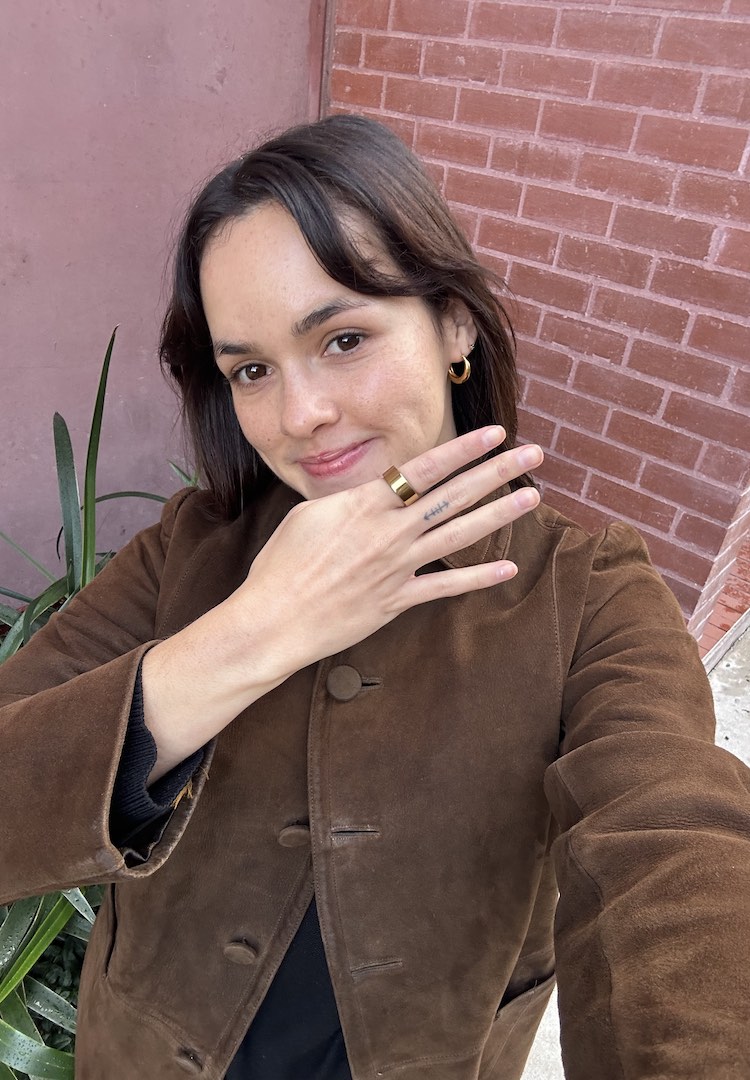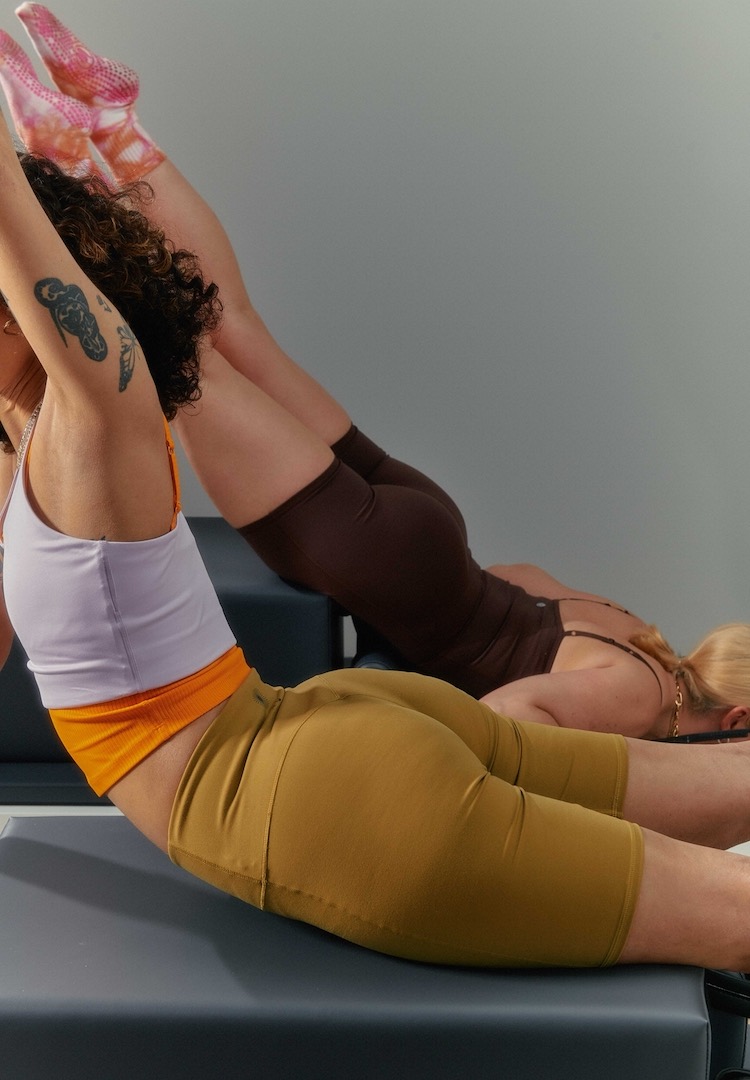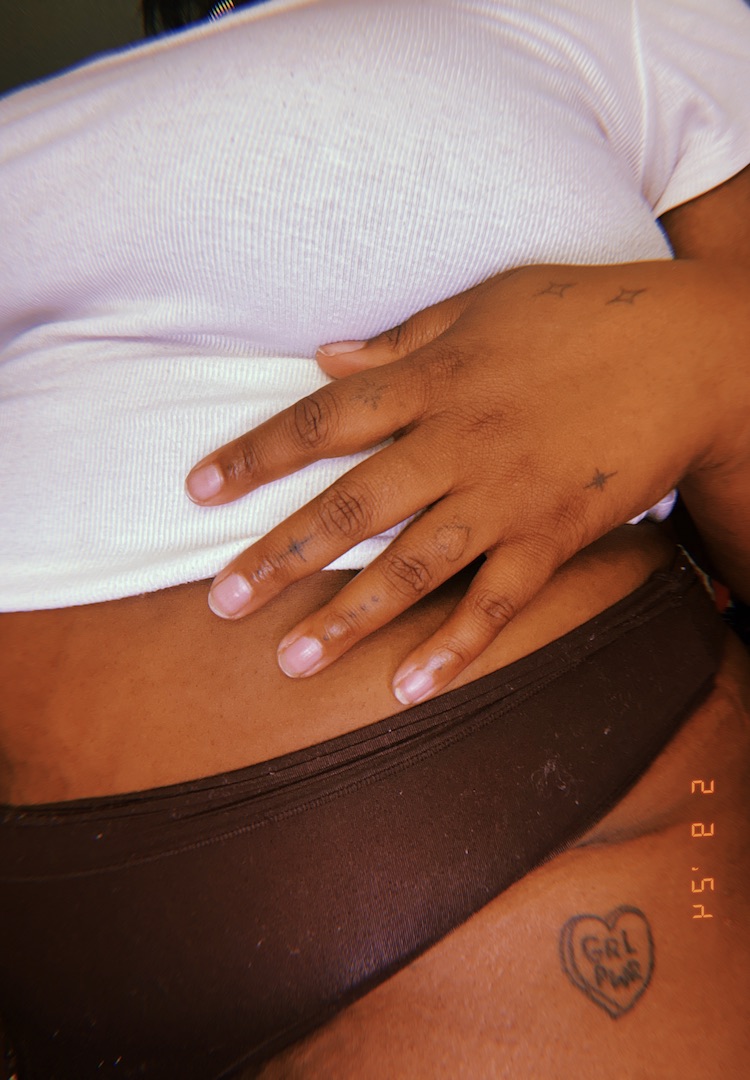How my greyhound helped me understand my vaginismus
WORDS BY SARAH ROWE
Vaginismus is more common than you might think, but it can be challenging to explain it to people.
I recently adopted a rescue greyhound, Millie. I adore her. She has soulful, deep brown eyes, a tail that wags when strangers offer pats and a nose that twitches when she frolics among the mint that grows rampant in our backyard.
Adopting her has been one of the best things I’ve ever done. There is something about the process of meeting her most basic needs – food, water, exercise, sleep, affection – that encourages me to meet my own. She follows me from room to room, a willowy shadow, a comforting reminder that I love and am loved.
For more perspectives on wellness, head on over to our Health section.
One hot evening, Millie lay on her bed while the fan in the corner of the room pushed the air around. I waited until sunset to take Millie out for her daily walk. We trotted along the streets of Brunswick, heading towards the park. Millie was happy, lifting her head at passers-by, welcoming their coos, nods and pats. I feel so proud of her in those moments with strangers – it warms me that she can be so trusting, so open, so hopeful.
We did a lap around the perimeter of the park, both of us appreciating the cooling air and timely peacefulness of a place that is usually swarming with dogs and their owners. And then it happened. She froze. Her foster parents had warned me about this, reassuring me that it’s quite common among greyhounds.
It’s a classic trauma response – frozen by the fear of something their owners often cannot see, hear or smell. Millie was rooted to the spot, and while she continued to pant, her limbs were rigid, her tail stiff. I tried coaxing her with treats, running around in circles, jogging on the spot, all the while trilling her name. In a moment of comical desperation, I even took off one of my shoes and threw it, hoping Millie’s canine instincts would take over and she would chase it.
She didn’t. By this point, sunset was quickly transitioning to night, and the desertedness of the park was becoming more sinister rather than serene. Plus, I was minus one shoe. A quick Google search showed forums with hundreds of owners discussing the common phenomenon of the ‘greyhound freeze’.
A frenzied scroll offered plenty of solidarity and empathy, but limited solutions. Between the freeze, the darkness, the missing shoe and my dwindling phone battery (8 per cent and already switched to low power mode), I decided the best (and perhaps only) option was to phone a friend to pick us up.
It was hard not to feel frustrated. I began to feel tears. Against my better judgement, I tried to tug her, thinking the force of the action may be enough to jolt her out of her frozen state. She yelped. A pang of guilt shot through my chest. I was hurting her. The tears of frustration became tears of anger at myself. Why had I tugged? Didn’t I know what it was like to be frozen out of fear? How force and frustration never worked?
The truth is, I felt great empathy for Millie. I had been there; I had experienced that same kind of corporeal fear that turns a body stiff, rigid. The first time I experienced that feeling, I was in my late teens. I was late to the whole menstruation thing, and so I was trying to insert a tampon for the first time.
I had my shorts around my ankles, one leg planted firmly on the cool bathroom tiles, the other hoisted up onto the sink. When I tried to ease the (mini) tampon in, it felt like hitting a wall. Thirty minutes and several contorted positions later, I gave up and resigned myself to a life of pad-wearing.
The second time I experienced that frozenness was in bed with a guy. Even though I suspected that my body’s response to penetration was not normal (I hadn’t forgotten the tampon incident), I didn’t yet have the language to articulate it to said guy.
‘Vaginismus’ was in my lexicon (I had scoured the internet in search of solidarity, and found many Reddit threads full of women who shared my dilemma), but it still tasted foreign and uncomfortable in my mouth.
I was okay reading it on a screen, or typing it into a search bar, but saying it aloud would make it real. And I wasn’t ready for that.
The third time, I was in bed with a guy I really liked. Well, as much as you can like someone you’ve made out and exchanged a few texts with – which, if you’re as neurotic and obsessive as I was in my early twenties, is an embarrassingly disproportionate amount.
And when the moment came – his body hovering over mine, his hands reaching for his belt – I told him to stop. I could already feel my body tightening, clenching, bracing for a pain it had somehow been programmed to anticipate.
Our (very brief) fling ended shortly after that. And even though he was kind and patient enough to reassure me that my inability to have penetrative sex had nothing to do with it, I couldn’t help but think; if we had had sex that night, would things have turned out differently? (Probably not, but when you really like someone, your mind has a way of desperately searching for reasons why you’re not together that aren’t simply because they’re not interested.)
It was after that point that I decided to seek help. Not because I felt any pressure from him or any other person, but because I recognised that, for me, sex was not something that I wanted to fear. It was something I wanted to embrace. I wanted to be able to experience pleasure, to play, to explore. I needed to learn to trust my body (or, perhaps more accurately, for my body to trust me).
So I found myself a physiotherapist, a sex therapist, a psychologist and a GP. And with patience, gentleness and encouragement, I worked through my fears. About six months after my first appointment, I was able to have penetrative sex for the first time. I learnt that force didn’t work; I needed gentleness. I needed quiet encouragement, softness and patience.
And that’s what Millie needed, too. So I knelt beside her in the dark, rubbing her ears, whispering gentle words (“it’s okay, it’s okay”) and waited. Because just like I couldn’t explain it to my partners, Millie couldn’t explain it to me. Though, that’s beside the point. Being unable to explain your fear doesn’t make the feeling of fear, the visceral sensation of it, any less real.
And so, Millie and I sat in the dark of Gilpin Park, mosquitoes swirling, me gently rubbing her ears, feeling her hot breath on my face, showing her the grace and kindness I wish I’d shown myself the first time my body froze, as we waited for the headlights of the car that would take us home to safety.
This story was originally published on April 1, 2022.
Want to learn more about vaginismus? Try this.













